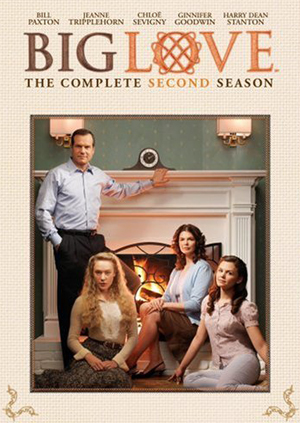 "To know rapture is to have one's whole life poisoned," writes Phillip Lopate.
"To know rapture is to have one's whole life poisoned," writes Phillip Lopate.I give each one its chance: the self-important I, Claudius bonanza; the Aristotle-violating metrosexual series about the CSI serial killer; the ever-incarnating nonsense of disappearing islands and unbreakable babies; the posturing pseudoethics of New Jersey fat men; the whole undertaker debacle. Fuck.
This new wave--what shall we call it? Wit programming?--this derivative Trollope-in-a-blender pretension trying so desperately not to try, emphatically not mere television but the serial novel for a digital culture, the thinking person's entertainment, sucks. I'm sick of it. Every new series manufactured from the specs of The Sopranos, which, by the way, wasn't half as original, slick, or intelligent as the folklore attests, works in exactly the same way, at the same pace, and yields to the same lazy vice, at the same sensitive moment.
The end of the first season of any "clever series"--all those HBO goofs with an index--poses a defining moral and aesthetic question to both its viewers and itself: now that the premise has lost its freshness--whether therapy-seeking mobster, ponderous mortician, survivalist airplane brigade, or new-age polygamist--how will the show justify its continued existence? Invariably, these shows fail the test. In place of subtlety, they offer sensationalism. Wary of the difficult or obscure, they pander. Suspicious of the learning they themselves recklessly covet, they pursue exhibitionist strategies, making a spectacle of erudition and an irony of scholarship. They have no center, no substance; unanchored, they drift from novelty to novelty, disconnected, cynical. Soap opera bubbles. Clever, pornographic fragments. They mean nothing. They exploit. They are sixty-minute sitcoms for people who read Finnegans Wake: vain bricolage.
Or maybe they just seem that way because they want to be The Wire, that singular exception to the industrialization of intelligence, that curiosity of conscience. Only Mad Men has met the challenge of The Wire, and although it doesn't quite compete with its model, it does successfully distinguish itself from its competition without indulging in the gamesmanship and trick-worship of shows like Lost and Big Love. It has style, but it also uses that style for more serious purposes. It explores marginal or unwritten materials, but it never manipulates. Mad Men may still disappoint me--I've seen only the first season--but whatever its plans for future seasons, I can appreciate the quality and integrity of the first effort, a clean and daring, but restrained, and confident, very certain, achievement. Authentic storytelling, not funhouse diversion.
Big Love's second season is ugly reprobate garbage. Common denominatorial--no, worse, sentimental. Unlike the first season, which just barely manages to survive its own rhetoric, season two takes itself too seriously, distrusts its audience, equivocates, congratulates itself, and confuses everything for nothing, and nothing for nothing. I cannot stress this enough: what you see is either entertainment or work. Either is fine. As surely as we need Ingmar Bergman, we need Magnum P.I. or Legally Blonde (now a musical!). What we do not need is another sixty writers just graduated from Brown--proleptically failed Dickens facsimiles--laboring to transform Everybody Loves Raymond into Scenes from a Marriage.
I know some viewers feel less hostile than I do. I should watch these shows with fewer neurons firing. But if we plan to treat these shows as bold new forms of art--harbingers of the new new novel, like Robbe-Grillet viewfinders or whitewritten kaleidoscopes--we'd better start to judge them by the standards of real art. Derivative Sollers should stack up fairly against original Sollers, and believe me, with the unreadable stuff that guy wrote as a model, meeting the standard should be cake.
If I had never seen The Wire, would I be more tolerant of these paint-by-numbers novelties? Well, I have seen it, and I'm not. Maybe it is true that rapture poisons your life, but as Socrates says in the Phaedo as he prepares his hemlock, all real philosophers adore oblivion.

We have this magnificence, and we have Bill Paxton treating four grown women like insolent children. The choice is yours.
Slothrop: On Koko's recommendation, Slothrop just picked up Big Love Seasons 1 and 2 on Netflix. This is gonna be great.
No comments:
Post a Comment